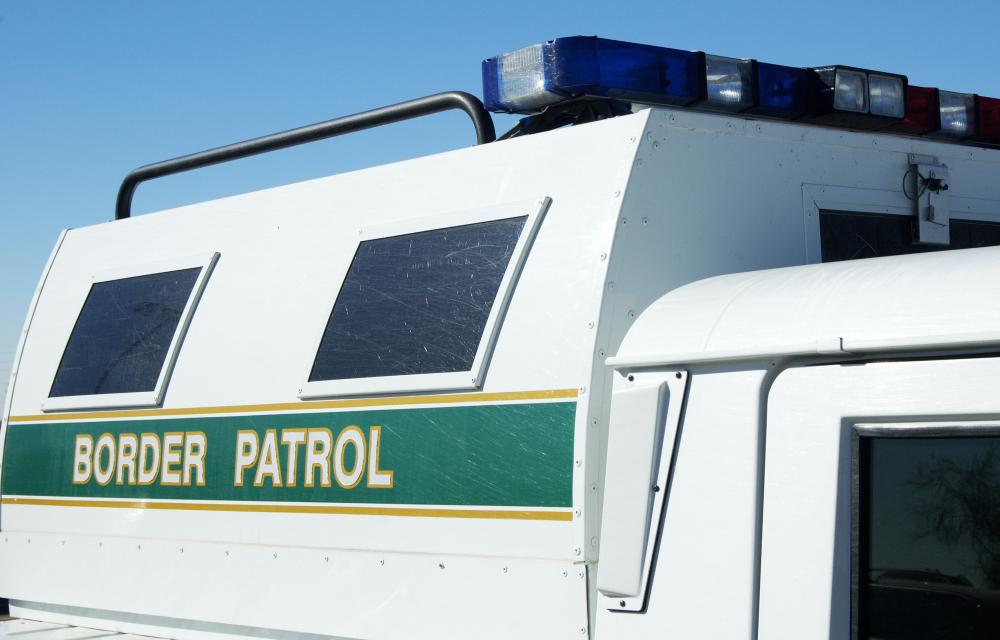At WiseGEEK, we're committed to delivering accurate, trustworthy information. Our expert-authored content is rigorously fact-checked and sourced from credible authorities. Discover how we uphold the highest standards in providing you with reliable knowledge.
What is the Homeland Security Act?
The Homeland Security Act is a bill that was approved by the U.S. Congress and subsequently signed into law by then-President George W. Bush on November 25, 2002. It created a new federal agency, the Department of Homeland Security, and initially placed 22 federal agencies under the department's jurisdiction.
Impetus for the bill was the terrorist attacks that destroyed the twin tower buildings in New York City on September 11, 2001. Many authorities believed that terrorist plans went undetected because government agencies failed to share information. Enactment of the Homeland Security Act represented the most sweeping realignment of government authority since the Department of Defense was established following World War II.

Agencies reporting to the Department of Homeland Security as a result of the law include the Immigration and Naturalization Service, Secret Service, Customs service, Federal Emergency Management Service, Transportation Safety Administration, and Border Patrol. The office to which all agencies report is the secretary of Homeland Security. Appointment of the secretary is reserved solely to the president of the United States. The Homeland Security Act excludes the Federal Bureau of Investigation and the Central Intelligence Agency from the list of agencies under the Secretary of Homeland Security, but the secretary is responsible for collecting information from the two agencies on matters related to domestic security.

The Homeland Security Act charges the Department of Homeland Security with the duty to prevent domestic terrorist attacks, lessen the nation's vulnerability to terrorist actions, minimize the consequences of terrorism, support recovery efforts, ensure the effectiveness of all agencies reporting to the department, and make certain that the policies of the department do not adversely affect the nation's economic security.

To achieve its objectives, the act spells out several areas for which the new department is specifically responsible. Among them are to analyze information and reinforce infrastructure, implement and improve homeland security science and technology, safeguard national borders and transportation systems, and ensure emergency preparedness and response. The act also ensured that agencies collaborate with with other from federal departments down to local governments and the private sector, created a National Homeland Security Council; and guaranteed the security of all critical information.

Further provisions of the Homeland Security Act transfer the Bureau of Alcohol, Tobacco and Firearms from the Treasury Department to the Justice Department; tighten restrictions on possessing explosives; and impose stiffer penalties for illegal possession of explosive materials. The act also enables the Transportation Safety Administration to train pilots in the use of firearms to defend their aircraft and passengers. In addition, the act specifies that only U.S citizens and nationals can be employed as airport passenger screening agents.
AS FEATURED ON:
AS FEATURED ON:















Discuss this Article
Post your comments